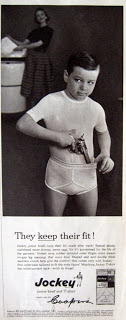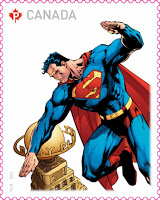 It was 48 years ago today when The Beatles gave their last live performance, although no one knew that at the time. It’s come down through history known as The Rooftop Concert.
It was 48 years ago today when The Beatles gave their last live performance, although no one knew that at the time. It’s come down through history known as The Rooftop Concert.
John, Paul, George, and Ringo — at that point the most famous musicians in the world — had been filming the recording of their ‘back to basics’ LP, that was supposed to do away with overdubs and studio trickery. The idea of a movie started out as a tee vee documentary ending with a live concert, before it morphed into a major motion picture.
Originally the album was to have been called “Get Back,” but was eventually released as “Let It Be,” the same name as the eventual movie and the biggest hit on the soundtrack.
The recording sessions were fraught with tension, with the Beatles bickering with each other. Even the level-headed and Transcendental Meditationizer Harrison had enough. He also quit the band for a period. When he returned he did so with Billy Preston to play keyboards, correctly guessing that the presence of a musician they all respected would cut down on the fighting.
According to the WikiWackyWoo:
Harrison recalled that when Preston joined them, “straight away there was 100% improvement in the vibe in the room. Having this fifth person was just enough to cut the ice that we’d created among ourselves.”[14]
While most of the bickering was left on the cutting room floor, this clip was left in the final cut of the movie:
They were stumped for a location for the ending of the movie. The documentary was always going to end with a live show, but they were stumped where to hold it. Suggestions ranged from an ocean liner, to the pyramids, to Pompeii. However, logistically those shows would have been difficult. At almost the last minute, as time was ticking away before Ringo had to start filming The Magic Christian, the decision was made to perform on the rooftop of Apple Corps, the Beatles’ own building on tony Savile Row.
 The 42 minute concert was the last time The Beatles played for an audience. However, they would go on to record one more LP, Abbey Road, actually released before the movie and Let It Be album. By the time the movie was release, The Beatles were history.
The 42 minute concert was the last time The Beatles played for an audience. However, they would go on to record one more LP, Abbey Road, actually released before the movie and Let It Be album. By the time the movie was release, The Beatles were history.
The songs performed on the roof that day were Get Back (five versions), I Want You (She’s So Heavy), Don’t Let Me Down (two versions), I’ve Got A Feeling, One After 909, Danny Boy, Dig A Pony (two versions), and God Save The Queen.
Also cut out of the movie was all of the genesis for the song that eventually became Get Back. It started off much differently than the song you hear now and could NEVER have been released in this form:
The Beatles have been criticized for these 2 songs once bootlegs started to appear, but it’s clearly a protest song of sorts, condemning the racism that they had been seeing at home. It’s just not a very subtle character study, like Elanor Rigby, f’rinstance.
Ironically, the session tapes of Let It Be were eventually given to Phil Spector, who laid all kinds of overdubs on the songs. This appalled Paul McCartney, who had been outvoted. Eventually, in 2003, Let It Be… Naked was released, without all the sweetening in a form that McCartney could live with.
The movie Let It Be was briefly available to purchase on VHS, Betamax, or LaserDisc, however the 1981 release was the first and last time it was available legally. There are reports that the entire movie was remastered by Apple in 1992. Apparently there was another remastering in 2003, including outtakes and bonus material, that was to have been released with the Naked CD, but that never happened either.
“Some people say” it’s Paul who has held off release of the movie because he comes off looking like a dick. The Wiki has something to say about that, too:
In February 2007, Apple Corps‘ Neil Aspinall said, “The film was so controversial when it first came out. When we got halfway through restoring it, we looked at the outtakes and realised: this stuff is still controversial. It raised a lot of old issues.”[43]
An anonymous industry source told the Daily Express in July 2008 that, according to Apple insiders, McCartney and Starr blocked the release of the film on DVD. The two were concerned about the effect on the band’s “global brand … if the public sees the darker side of the story. Neither Paul nor Ringo would feel comfortable publicising a film showing the Beatles getting on each other’s nerves … There’s all sorts of extra footage showing more squabbles but it’s questionable if the film will ever see a reissue during Paul and Ringo’s lifetime.”[44] However, in 2016, McCartney stated he doesn’t oppose an official release, stating, “I keep bringing it up, and everyone goes, ‘Yeah, we should do that.’ The objection should be me. I don’t come off well.”[45]
Maybe one day we’ll finally get to see this movie again. Until then, enjoy some bootleg recordings of the Rooftop Concert while they’re still on the YouTubery.
ENJOY!!!
































